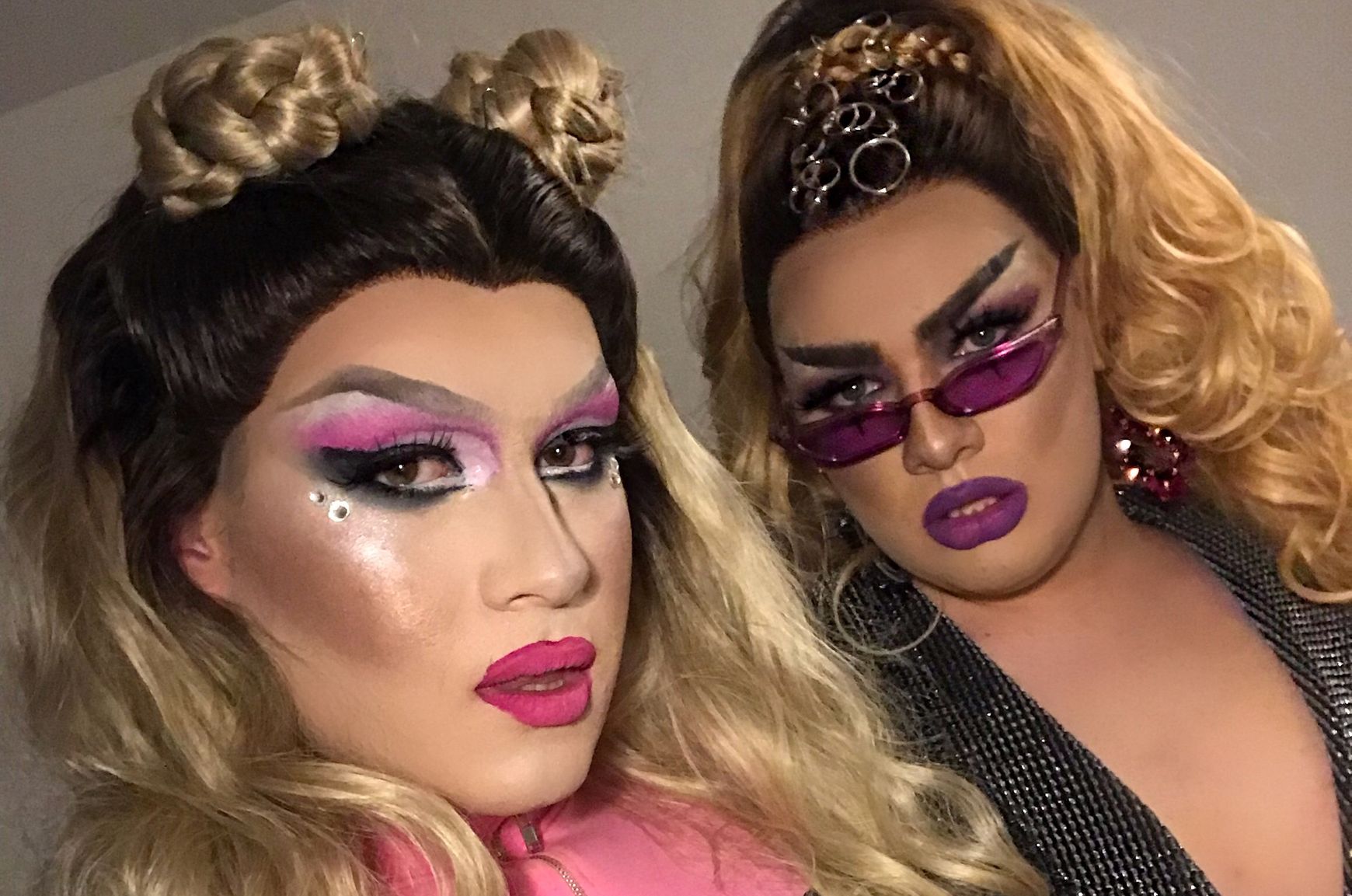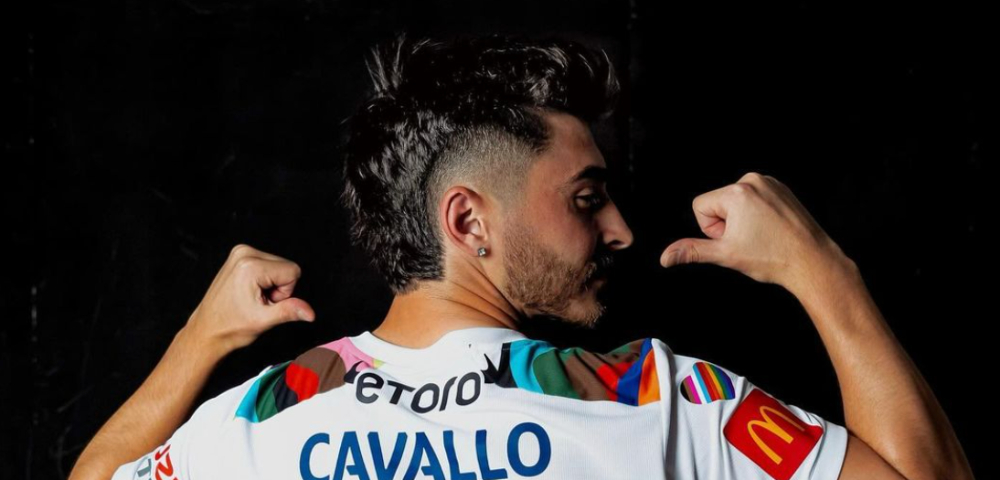
‘It’s a double life’: family rejection and finding a new home in the drag community

Queer people often risk facing family rejection or homelessness for being who they are, but others create their own families. John Voutos reports.
***
Sydney-based drag personality Michelle Mayhem is a testament to the struggle many young queens face when it comes to parental acceptance.
The 20-year-old – presented as ordinary, flat-haired Mitchell – explains that she feels on edge speaking about her relationship with her parents.
“I feel guilty,” she says. “Every time I interact with them, I can always tell in their expressions that I disappoint them, especially when I go out and they scan my face to see if I have any make-up on.
“When I came home after performing one night, my mum told me to wash off my eyeliner. I had glitter on my nails from when I painted them and she brought me nail polish remover and removed it herself.
“She’s told me straight up, ‘I don’t want to be part of this.’”
Parental rejection can be detrimental for young LGBTI kids growing up, and can even lead or force them out of their family home.
Supporting this claim is the Gay and Lesbian Foundation of Australia’s (GALFA) report from September of last year that found LGBTI youth were at least twice as likely to find themselves without a home at a younger age.
And Australian Bureau of Statistics (ABS) data from March found that homelessness in Australia was up by 14 per cent over the last five years, with more than 43,500 homeless people under the age of 25.
While Mayhem has never struggled with housing, she has considered seeking support and counselling services as a result of the friction between her and her parents; friction sparked by her being gay and doing drag.
“It always just kind of scared me because I don’t want to give my parents extra stress. My parents have already dealt with so much when it comes to me,” she says.
Adrian Murdoch, digital marketing coordinator for Minus18, says there’s always more that Australians could be doing for LGBTI youth.
“Generally, those who play with gender or drag have to engage with a larger variety of services,” he says.
“They’re more likely to [seek out our services] than someone who relates to a part of the community that’s more recognised.”
Murdoch says this is because smaller groups in the community struggle to find a space where they can truly express themselves without justification.
“When they can talk to people who have or who still are going through similar circumstances, it gives them that momentum and strength to be loud… they don’t have to navigate their situations quietly.”
Mayhem says the need for justification is present during times when she’s had to distinguish between doing drag and being transgender to her parents.
“I’ve clarified to them that I don’t want to be a girl but my dad will see the tiaras in my room and still say, ‘You’re a boy, not a girl’,” she says.
Contrasting the strained relationship she has with her parents, Mayhem’s relationship with her fairy drag sister Zachary Rennick – the man behind performer Peaches – has blossomed, proving that biology is no requirement for the foundation of family.
Rennick says he was excited to help Mayhem “become the destined woman she was supposed to be.”
“I have been there every step of the way with Michelle on her journey, from helping her buy make-up and helping her choose her stage name, to watching her walk in heels for the first time and watching her grow into this life that I didn’t know was within her,” he says.
“It’s unfortunate to watch Michelle hide a really special and big part of her life from her parents,” Rennick says as Michelle interjects, “at 11 o’clock at night, when my parents were asleep, I’d be in my room practicing my make-up.”
Rennick continues, saying, “I would not be the queen I am today without my drag brothers and sisters who have loved and supported me for who Peaches is… so I always promised to support [Mayhem] in any way I could.
“I couldn’t let my best friend not enjoy the same happiness and joy I got from drag.”
Mayhem adds that Rennick has helped her feel valid and supported as a drag queen when her parents have not.
“I told Peaches I wanted to do drag and he took me to a high heel shop and I tried on high heels for the first time,” she says.
“He knew my backstory so he was kind enough to let me in and let me store my drag at his place. He’s my big sister.
“Whenever I do drag, I stay with Peaches. When I leave in the morning, I make sure all my make-up is off and I go home to my parents pretending nothing happened.
“I guess you could call it a double life.”
Mayhem sits back to appreciate the solace she has found in the drag community.
“We are all sisters,” she says, explaining that behind the cut-throat fronts of fellow drag queens in her age group, their vulnerabilities unite a sisterhood in which no-one is left behind.
“I can’t imagine not having Peaches.”









